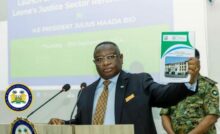AGOA Eligibility and Ineligibility: A Critical Analysis


AGOA Eligibility and Ineligibility: A Critical Analysis
AGOA Impact on US-Africa Trade
AGOA, the African Growth and Opportunity Act, is pivotal in US-Africa trade relations. Its eligibility criteria significantly influence which African nations can benefit from duty-free access to the US market. This article critically examines AGOA’s eligibility and ineligibility, assessing who benefits most and what needs changing.
Understanding AGOA’s Criteria
AGOA eligibility is contingent on various criteria, including economic and political reforms, labor rights, and market-based economies. According to the U.S. Trade Representative, countries must demonstrate progress in establishing these reforms to qualify. However, the stringent criteria often exclude nations struggling with political instability and economic challenges.
Winners and Losers in AGOA
Countries like Kenya, Ghana, and South Africa have thrived under AGOA, exporting textiles, agricultural products, and automobiles to the US market. “AGOA has been instrumental in boosting our export-led growth,” noted Kenyan Trade Minister Betty Maina. However, nations like Sudan and Zimbabwe remain ineligible due to political and human rights issues.
Pros of AGOA for Africa
AGOA has enabled eligible African countries to increase exports and create jobs. The agreement has attracted investments, spurring economic growth. For instance, Ethiopia’s textile industry has flourished, employing thousands. “AGOA has opened doors for us in the US market,” said Ethiopian Prime Minister Abiy Ahmed.
Cons of AGOA’s Eligibility Criteria
However, AGOA’s stringent eligibility criteria have left many African nations behind. Countries facing political turmoil or slow economic reforms are excluded, preventing them from accessing US markets. Critics argue that these nations need more support, not exclusion. “Excluding struggling nations doesn’t help them progress,” stated economist John Muwanga.
US Foreign Policy and AGOA
AGOA also serves US foreign policy interests by promoting stability and good governance in Africa. By rewarding nations that adhere to democratic principles and market-based reforms, the US aims to foster reliable trade partners. However, this approach can be seen as paternalistic, prioritizing US interests over African needs. “AGOA is as much about US interests as it is about helping Africa,” noted political analyst Sarah Johnson.
What Needs Changing in AGOA?
The US should consider revising its eligibility criteria to make AGOA more inclusive. Providing more support to nations working towards reforms rather than excluding them could foster greater economic stability. Expanding technical assistance and capacity-building programs would help struggling nations meet AGOA standards. “Inclusive trade policies would benefit both Africa and the US,” suggested trade expert Robert Kagwe.
The Role of the African Union
The African Union (AU) can be crucial in helping African nations take full advantage of AGOA. By coordinating efforts to meet eligibility criteria and advocating for fairer terms, the AU can ensure that more African countries benefit. “The AU must champion AGOA reforms for the benefit of all its member states,” urged AU Chairperson Moussa Faki Mahamat.
Conclusion: A Path Forward
AGOA has the potential to significantly boost African economies, but its current structure leaves many behind. The US can make AGOA more inclusive by revising eligibility criteria and offering more support to struggling nations. The African Union’s involvement is crucial in ensuring that all African nations can benefit from this vital trade agreement. As AGOA continues to shape US-Africa trade relations, a balanced approach considering both continents’ interests is essential for its success.
Recent Posts
SLPPNA Convention 2025 Election Disputes Shake Leadership
Three SLPPNA chapter elections were annulled, raising allegations of manipulation by Chairman Pessima as he…
SLPP North America Leadership Twist
Explore the behind-the-scenes politics of SLPP North America as Chairman Pessima maneuvers for a second…
President Bio Expands Sierra Leone’s UNIDO Partnership in Key Sectors
Sierra Leone’s President Julius Maada Bio reinforces the nation's collaboration with UNIDO, aiming to drive…
First Lady Fatima Bio Honored at London Political Summit
Dr. Fatima Maada Bio, First Lady of Sierra Leone, was honored at the 9th Annual…
Bio Launches 5th Generation Justice Reform Strategy
New Brookfields Hotel, Freetown, Thursday, 12 September 2024 — Sierra Leone’s President, Dr. Julius Maada…
Sierra Leone and China Sign $50M SMART Project Agreement
Beijing, China, Tuesday, September 3, 2024. The Government of Sierra Leone and China National Technical…

